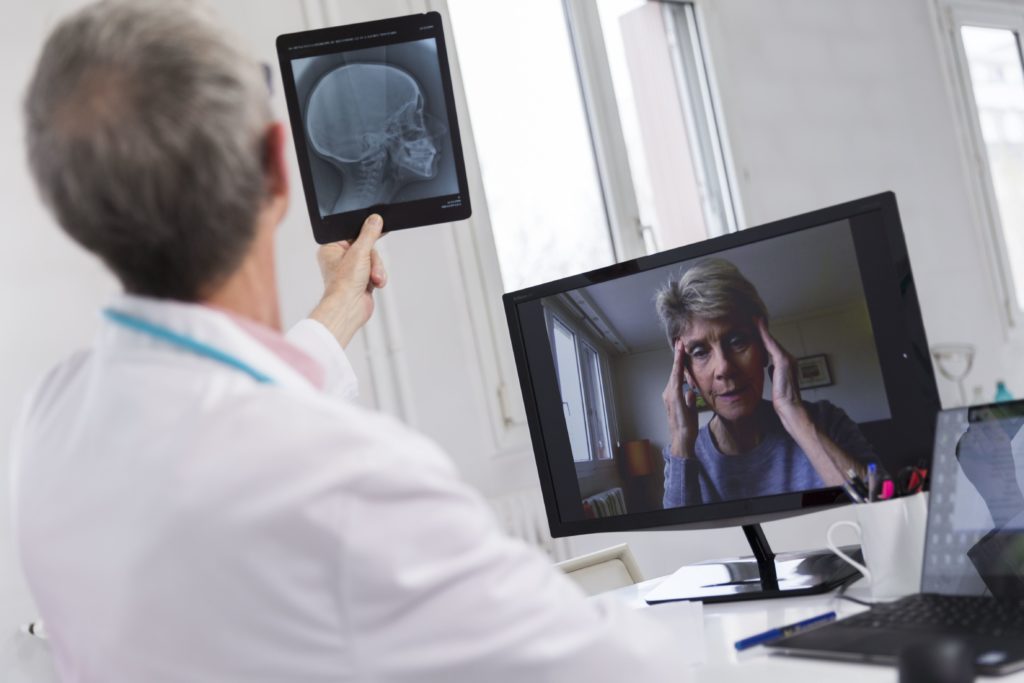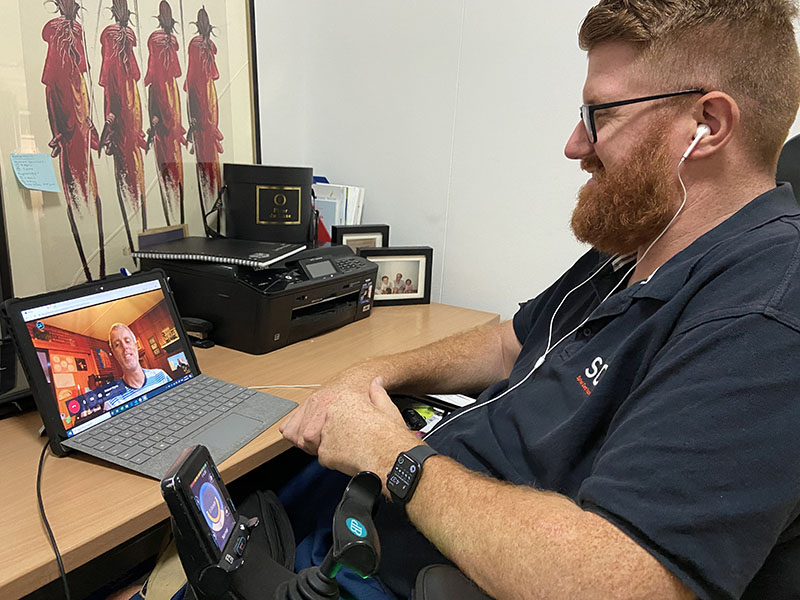
SCIA turns to technology to deliver its services to vulnerable clients and members
The impacts of COVID-19 have been difficult for the entire community; but for people living with a disability many of the restrictions have been particularly challenging.
The requirement to physically distance from one another means for example that many of the usual support services and therapies available to people with a disability have had to be suspended.
Spinal Cord Injuries Australia (SCIA) however has rapidly transformed operations in order to be able to offer an array of digital support – including remote telehealth services – to its 2,300 members and 1000 clients across the country.
SCIA provides critical care and support to its members and clients; in the last financial year it managed more than 21,000 customer interactions. Its NeuroMoves exercise program, designed to build health, mobility and independence of people with spinal injuries delivered 23,514 hours of exercise therapy.
When COVID-19 struck SCIA needed a way to keep its 140+ staff (about a third of whom have a disability) safe – but do whatever it could to continue to support its members and clients.
Advice from the NDIS Quality and Safeguards Commission and the Federal Department of Health prompted SCIA to temporarily suspend NeuroMoves’ face to face sessions in late March.
But by shifting to a telehealth model, SCIA has been able to leverage Microsoft Teams for a number of group sessions and deliver both one-one-one and group therapies for up to three people, helping to preserve the physical and mental wellbeing of its members.
That is critical says SCIA CEO Dianne Lucas as; “Our main purpose is to help people with the injury and the conditions and their families thrive. So we provide services around supporting people, in terms of exercise, physiology and physiotherapy. We also look into accommodation and have some short term and long–term accommodation, support people in to meet their goals and ensure care continues throughout this period. We also offer peer support in New South Wales, in the spinal units and in the community nationally,” apart from Tasmania and the Northern Territory where it is currently looking to expand its services.
Technology promotes accessibility
The organisation was already keenly aware of the impact technology could have on people with disabilities, as it has played a critical role in helping many people living with a disability to participate in the workforce.
SCIA itself however had struggled with legacy computer systems that were not fully able to meet its needs. Working with Microsoft partner BCPrise the organisation has been transforming, and adopting modern digital technologies that will allow it to be seen as an exemplar of what is possible in terms of accessibility, inclusion and efficiency.
“We want to have people to come to us and say, ‘well, how do you set up the technology to support somebody with a disability to be employed?’ They would come here and have a look,” says Lucas.
Working with Paul Sargeant, managing director of BCPrise, SCIA conducted a digital health check as a first step toward transforming the organisation.
By moving to the cloud, embracing SharePoint for document management and Teams for communication and collaboration, as well as taking voice calls to the cloud and upgrading end user hardware, SCIA created a step change in terms of its digital capability. That transition also paved the way for the operational pivot that SCIA needed to make in the wake of COVID-19.
To protect the health of its staff – about a third of whom have a disability – it initially split its teams in half in order to achieve social distancing.
Lucas explains; “We were able to split our teams to work in different locations, because all of our technology was designed so we could work anywhere. In the worst–case scenario, if someone did test positive, it would only mean half of our teams would need to self-isolate , and we could still operate with the remaining team.”
SCIA’s next pivot focussed on the exercise physiology and physiotherapy service, NeuroMoves, which had to close its face to face operations to protect often vulnerable clients. It had already seen a spike in cancellation rates as clients took direct action to protect themselves.
Without a significant shift in approach, about 50 SCIA’s staff would have to of been stood down– and its clients would have also lost access to therapy sessions for weeks certainly, and possibly months.
Ahead of the COVID crisis SCIA had begun to pilot a telehealth service and built our Microsoft platform so it was able to swing into action fairly rapidly after the face to face NeuroMoves service had to close.
“At this point in time, we’ve been able to pick up half of our capacity through telehealth services using a combination of platforms including Microsoft Teams.,” says Lucas.
We believe over the next month, two months, we’ll working toward being close to full capacity.”
Teams is allowing us to grow into that small group and broader exercise area, because it’s easy to use. The visuals are fantastic. And most people, because it’s Microsoft, again, it’s an easy connection for people. So we’re finding that it’s working really well for us.
Being able to participate in the therapy groups while remaining physically distant from one another is also helping SCIA members overcome the feeling of isolation as they can see the other people in their group.
SCIA staff have also been able to deliver the service from their own homes, allowing a degree of workplace flexibility for them that was previously not possible.
Lucas is herself also making use of Teams to stay connected with SCIA personnel in a weekly Teams video call which helps to encourage communication and collaboration across all staff nationally. “We’re doing virtual drinks after hours. We’re doing virtual farewells. We’re doing a whole lot of things, quite fun things online. So internally, I think it’s changed how we connect and engage as well. I think that it’s helps enhance our culture and ensure people remain connected to the organisation and is going to be fantastic for the future as well.”
The organisation is also in the process of transitioning its peer support services online. Traditionally this service has seen people going into hospital spinal units to support people as they recover from an injury, but at present that is simply not possible because of hospital visits being curtailed.
An online service however would allow the peer engagement to continue regardless. It’s the new business as usual.
After this all of our services will be actively moved to both face to face, phone and on-line.
We’re focused on supporting our customers during these difficult times. For more information on how we can help your business, please see our dedicated webpage and report on Supporting Resilient Operations. We’ll be updating these resources regularly as the situation evolves.















